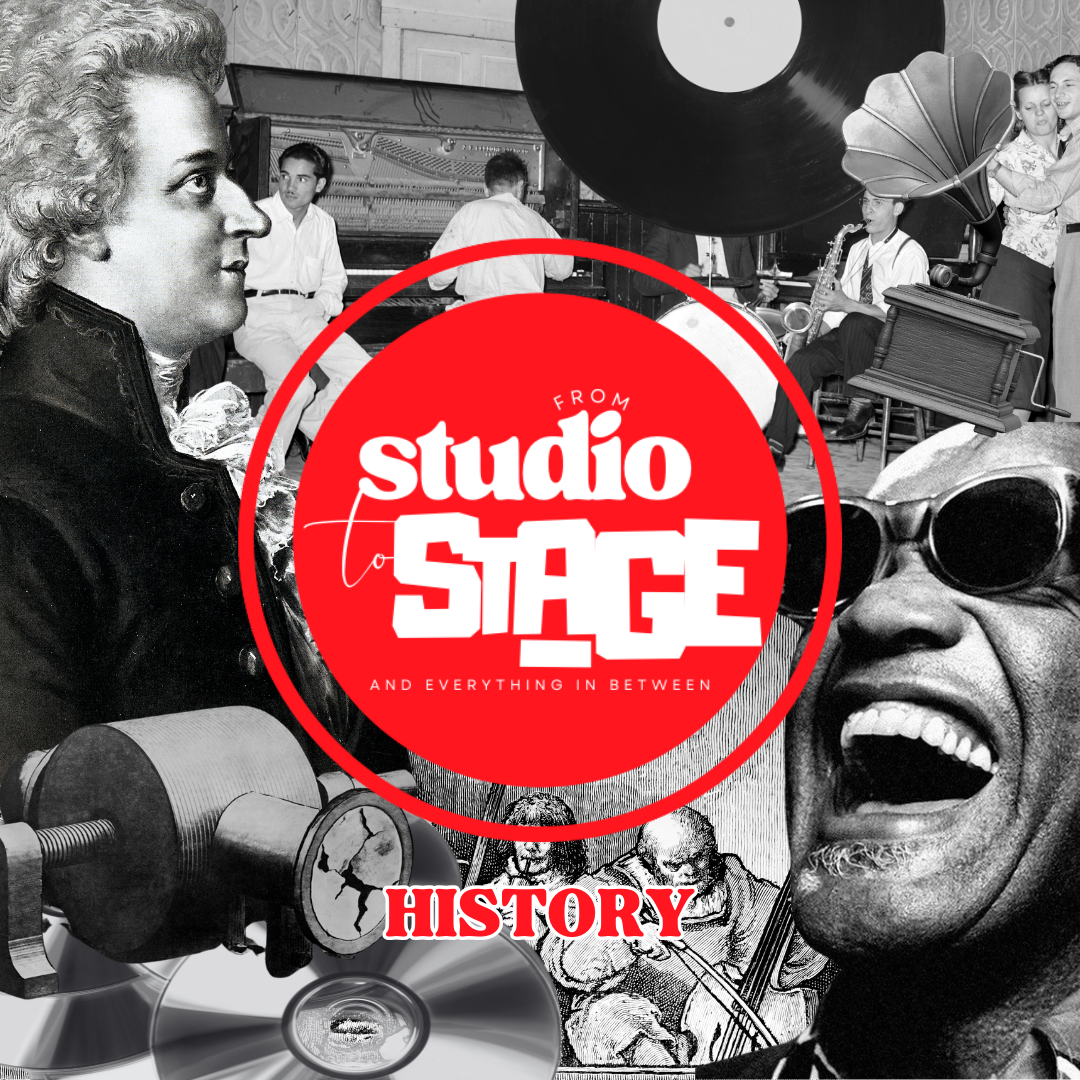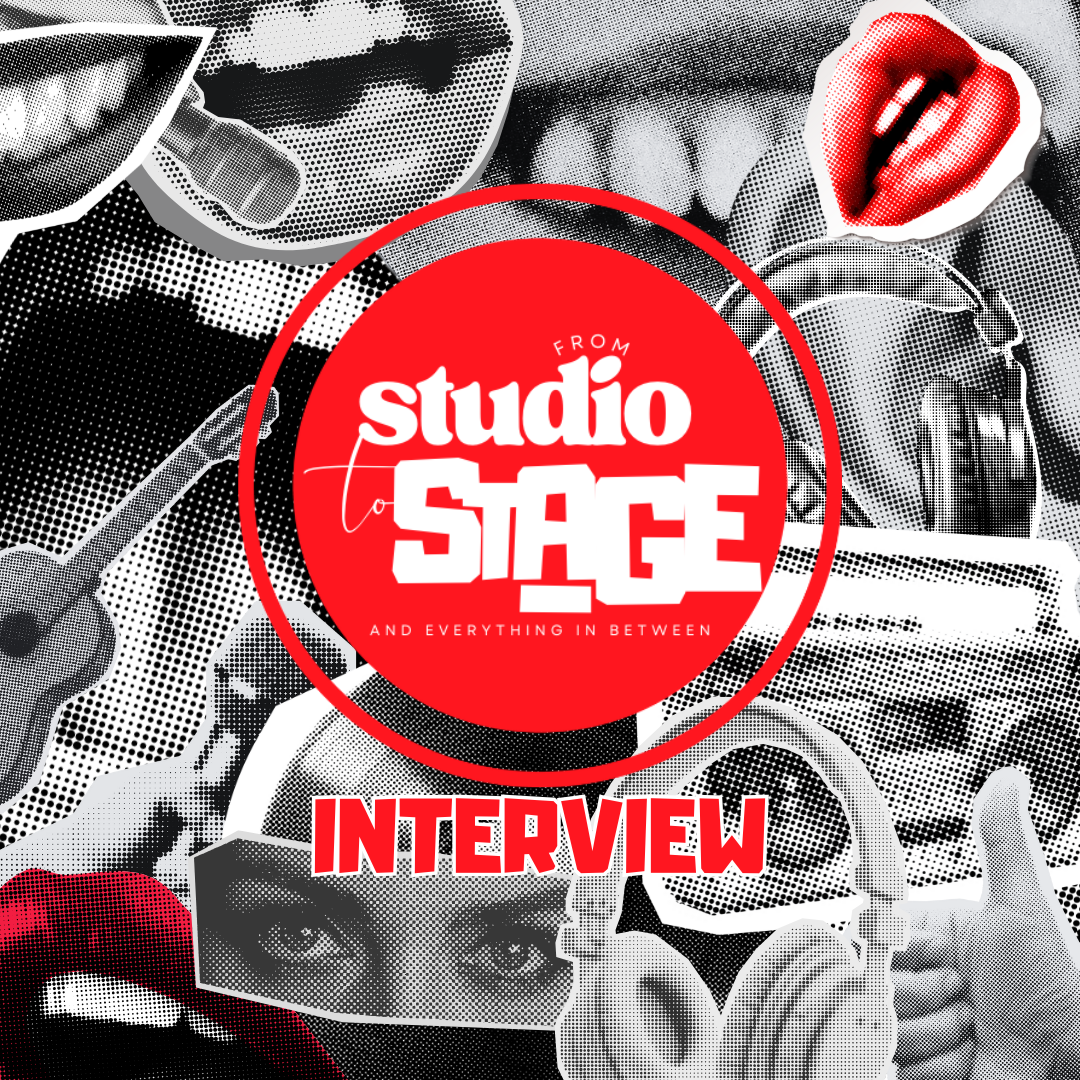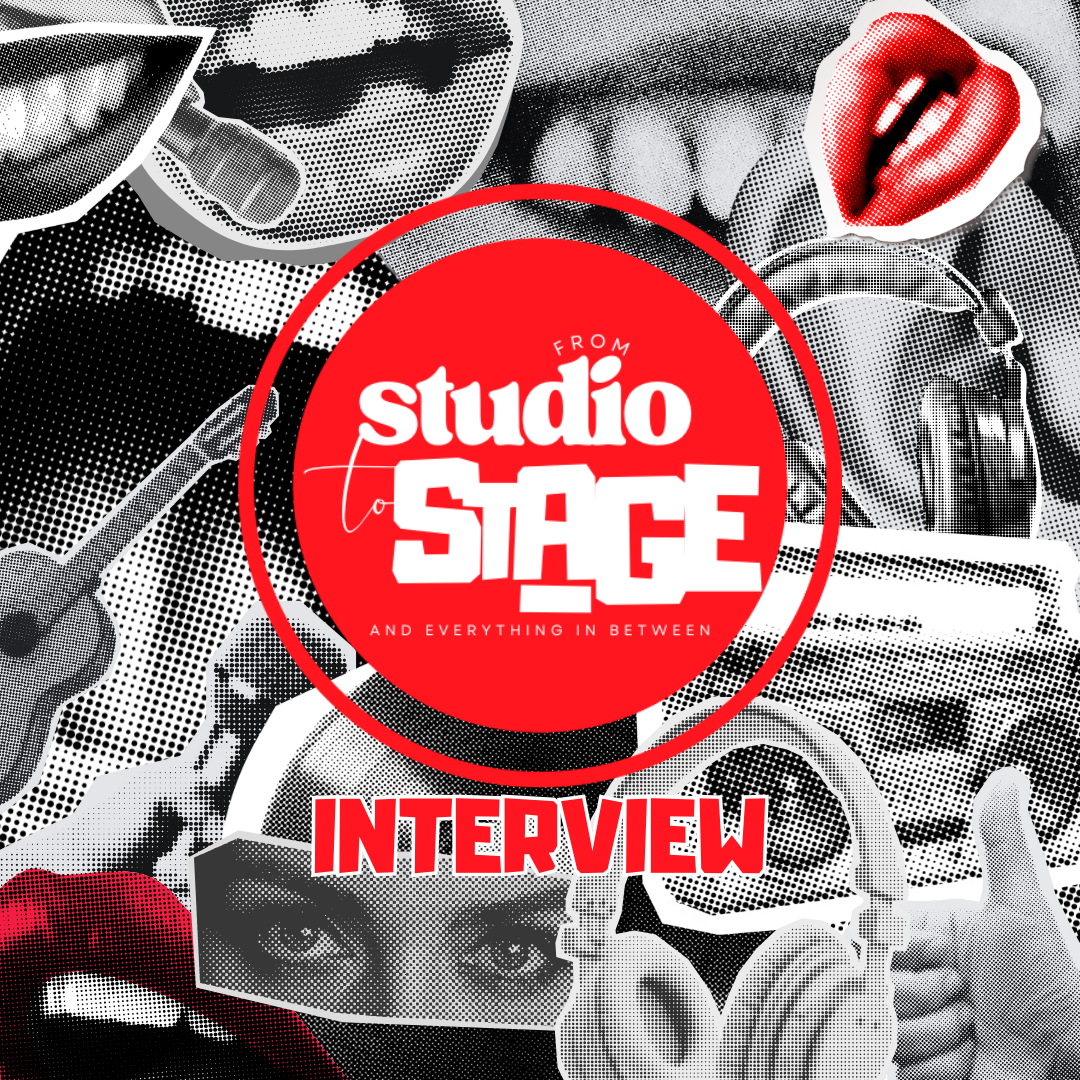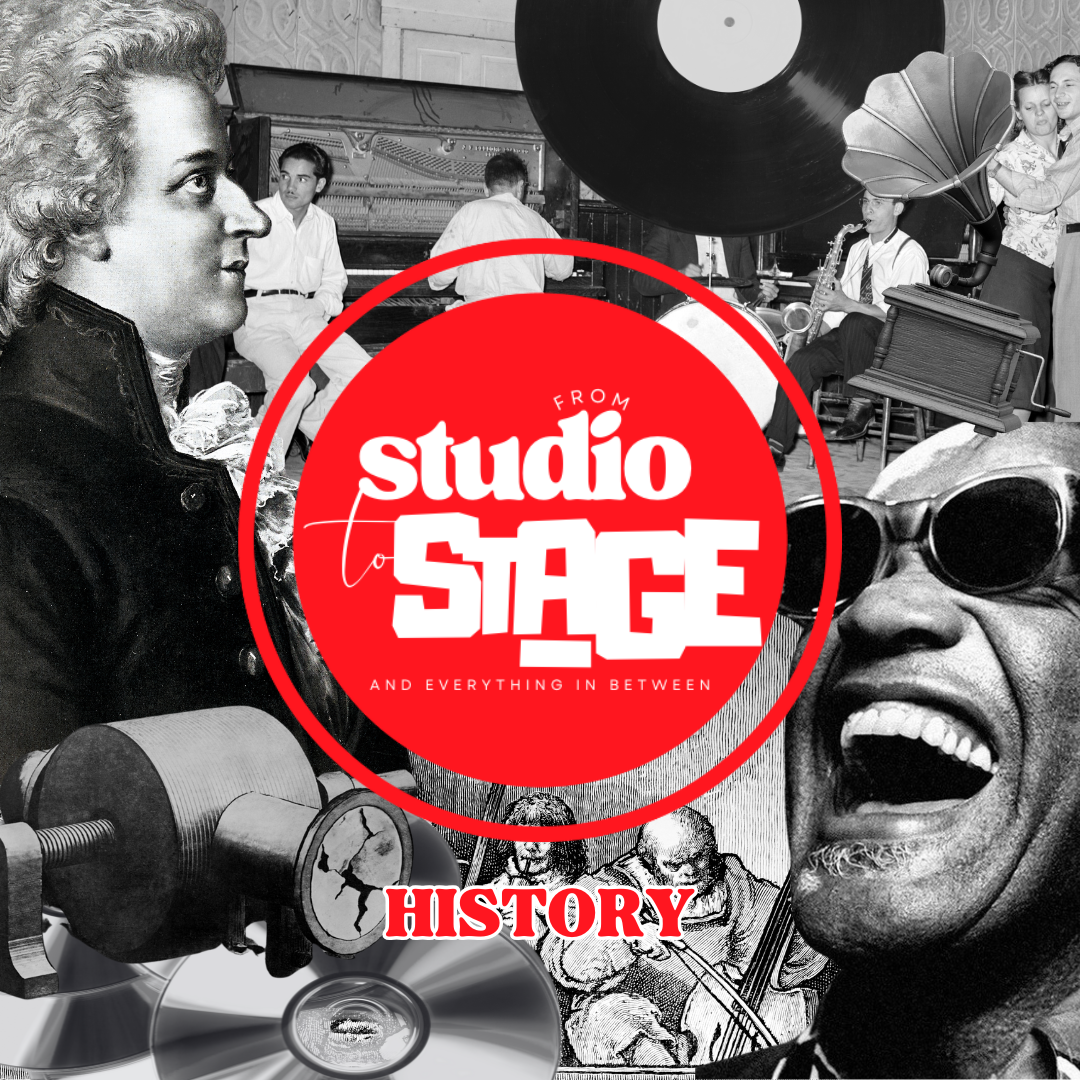Episode Transcript
[00:00:33] Good morning babies.
[00:00:36] Oh, good afternoon, good evening or good night depending on when and where you are listening to this podcast. My name is Abby and welcome to From Studio to Stage and Everything in Between. This is the first episode of my brand new little music podcast. And just to clarify something that I picked up recently, this is a music topic based podcast.
[00:01:01] Something that I picked up on Instagram is a lot of DJs wanted to submit mixes for the podcast and while I will be featuring a couple of mixes once a month, this is predominantly a spoken podcast about everything to do with the music industry.
[00:01:19] So before we start getting into all the good stuff that this podcast is going to cover, let me introduce myself. Let me introduce you to the host. My name is Abby and currently I go by Abby Danger as I am a local DJ here in South Africa. I am a multi genre dj, meaning I play more than one genre. I am also a qualified sound engineer as well as a classically trained musician. So music, like I said, has always been the greatest love of my life and I thought hey, why not turn it into a podcast and discuss a everything about music. So building onto that, what you can expect to hear from Studio to Stage are episodes based on music history, like this one today. Product review episodes, interviews with key players in the music industry, and I mean everyone in the industry. So I'm going to be chatting to different artists, agents, music lawyers and even psychologists. For good measure, I'm also going to be covering a few tips for upcoming musos, DJs and producers. And I'm going to throw in a random episode every month where I will discuss something in the industry that's been on my mind. But let's jump straight into today's episode now.
[00:02:32] So since this is the first installment of From Studio to Stage, I thought it would be awesome to cover the history of sound. So sound through the ages. So what I'm going to be talking you guys through is when the first song was ever recorded. When music switched from being a religious thing to to a secular thing, the first form of amplification found in history, the first ever music festival. And no, don't get excited, it's nothing like Opi Kopi or Woodstock. The first notated music in history and the first instrument ever found.
[00:03:08] So without further ado, let's jump straight in. So the first ever recorded piece of music. There's actually two contenders in this category and in the left corner coming to you from 1860 by Edouard Leon Scott de Martinville is an interesting little piece of music called Au Claire de La Lune. As I mentioned, this song was arguably recorded in 1860. And fun fact, it actually predates the gramophone. But like I said, this was not the only contender for the first song ever recorded, arguably. And in the second corner, the other piece of music that is argued to be the first ever recorded piece is Arthur Sullivan's the Lost Chord. And this was recorded on a phonograph in 1868.
[00:04:00] Now I don't know if you guys actually know what a phonograph is, but I saw an interesting reel on these the other day. And how it works is there's a wax cylinder that has a needle etching sound waves into it. So sound waves are played and then the needle corresponds with the waves and etches it into the little waxy cylinder. And then you pop that cylinder into the phonograph and then it reads that piece of music. The recording on the wax cylinder, as a record would be read. That's how I understood it. But it's a very, very interesting thing to see how music used to be recorded back in the day. It's actually really cool.
[00:04:38] Well, I mean, if you me you'll find it very cool.
[00:04:43] Something you've got to know about me is I've always loved history and I absolutely adore music. So when the two come together, hot damn, that's a happy, happy Abby. So when music switched from sacred to secular. Oh, this is the next topic we're going to be discussing is when music switched from being a religious thing to a conventional secular enjoyment thing. Now this was said to take place in the 14th century. The switch started in the Ars Nova period and the major shift took place in the Renaissance period.
[00:05:15] Now when this began to happen, the churches of the time tried desperately to suppress any form of non sacred music.
[00:05:24] Important composers during the rise of secular music are Guillem de Machutes and Francisco Landini, who was a blind Italian composer. Now another fun fact coming in at you is the first paid concert that ever took place in history was 352 years ago. Now this was hosted and performed by a man called John Banister in London, England. Bannister was a composer and violinist and he pretty much set the stage for all other musicians after him to start charging for their performances.
[00:06:00] Interestingly enough, someone who took a leaf out of this chap's book was none other than the great Mozart. So Bannister, who is arguably a lesser known composer, was a trailblazer for the likes of Mozart and everyone who came after him. So I think we all owe Jon Bannister A big round of applause. Yay Bannister.
[00:06:27] Now the next topic we're going to get into is the first ever musical festival and the first form of amplification.
[00:06:35] So the first ever music fest as I said was nothing cool like Woodstock or Opikopi or any Bours or anything like that that you'll find in South Africa or Coachella overseas. But look, it was hella cool for back in the time when it was because the first ever festival that took place was in 528 BC. So just let that sink in. The first ever music festival is over 2000 years old.
[00:07:05] Now this was something called the Pythian Games and this was celebrated in ancient Greece.
[00:07:10] So when I first was doing this research I thought okay cool, maybe the Pythian Games was like a sporting event similar to the Olympics and music was just an afterthought there for entertainment for people. But no, the Pythian Games was actually a dedicated festival to music, performing arts, poetry reading, speech and musical recitals in every way, shape and form. So people also gathered to sing hymns and watch live musicians at the fest. So it really was a full on musical festival which happened two, six, oh six years ago. Can you believe that? I that is just absolutely mind blowing to me. If you think about it, you know that's pre Jesus, people were already celebrating music and it's actually really cool.
[00:08:03] So now obviously in order to showcase your music, you need to amplify it in some way, shape or form. But I know what you guys are going to say, but Abby, back in the day before electricity, how did people use amplifiers?
[00:08:19] Simple babies. The first known amplifier that ever came into existence is something called an amphitheater. So what this is, is a building or structure that is developed in a way that sound waves will basically echo, thus creating a form of amplification for the musician or speaker in question.
[00:08:42] Now the first man made amphitheater to ever be found was built in Pompeii over 2000 years ago. Another fun fact about amplification, this is completely unrelated. Well it is kind of related to music history in some way, shape or form. But a very popular guitar amplifier is something known as the Marshall amp. I mean like I've even got a Marshall amp for my guitar. But fun fact about this, Jim Marshall, who was the creator of Marshall Amplifiers, was actually never a guitarist himself. He, he was a drummer. How wild is that? He just thought okay, let me develop an amplifier to help my fellow musicians. So thank you Jim. I use your products and I stand by them wholeheartedly. Please note, this podcast is not sponsored by Marshall Amplifiers in any way, shape or form yet.
[00:09:39] Now, the next topic we're going to be covering is the first ever found notated piece of music. So this isn't a recording. This is the first form of sheet music, if you will. So the oldest song known to be recorded in writing is something called the Hurrian Hymn, which dates back to around the 13th century BCE so that to date is 3201 years ago, if you can believe that. So the hymn was composed in cuneiform on clay tablets and was found via excavation in the 1950s in Syria. Now, the first piece of music to be found in its entirety, meaning the whole song was found. Was found on a marble column in Turkey. And this actually baffled me because it's found on a marble column in Turkey. However, it's a Greek tune from the first century A.D. and it was called Scylios Epitaph. So now we've discussed music through the ages, but have we even touched the instrument yet? No, we have not. And that's what I'm gonna get into now. And babies, all I'm gonna say is, strap in for this one because these facts blew my damn mind. It was just like a series of mini explosions going.
[00:11:00] Because this is, it's, it's mind blowing. If this doesn't shock you, I don't know what will. So when I was doing my research, I thought, okay, cool, the first instrument has to be some kind of percussive instrument, like a drum or something like that, because that's simple, you know, you take a stick and you knock a hollowed out piece of wood and it makes that. And there you go, there you got a drum. But no, the first instrument was actually a bone flute. And strap in. This was dated back between 50 to 60,000 years ago.
[00:11:37] So this bone flute was made out of the thigh bone of a young cave bear, which also I'm just like ancestors. Seriously, like a cute little cave bear baby. Like, why, why leave the bears? They so cute.
[00:11:52] But anyways, I digress. The first flute was made out of the thigh bone of a young cave bear. And this was found in a cave in Slovenia.
[00:12:01] Just wrap your head around that, guys, because this is 50 to 60,000 years old, this little flute that they found.
[00:12:10] It suggests that our ancestors were sitting around a campfire one day, someone picked up a bone, sucked out the bone marrow or something like that, blew out the bone marrow, heard a toot, toot, toot, thought this was a good idea, and then decided to drill holes into this bone and make melodies. That is next level. Well, for me at least. I don't know if I'm. Please tell me on Instagram or in the comments if you found this fact as mind baffling as I did because I am ruined.
[00:12:40] Also, what's fun about this is the flute was actually not only just found in Slovenia. Many, many flutes, bone flutes were found throughout history and the second oldest one was found in a Germanic cave which dates back to about 45,000 years old. And guys, I just wow, wow, wow, wow. But also a fun fact about this is historians have speculated that this might not actually be the first instrument.
[00:13:11] It only is the first found one because bone can survive through the ages. So obviously with things like percussion, if you're making a drum out of animal skin and wood, that's going to degrade over time and therefore they can't actually say for facts that a drum was not first. I do believe a drum came first because as far as my mind goes, that's just it's the simplest kind of musical instrument to create, you know, as I said. But another thing that historians have speculated to be the first kind of instrument was something known as lithophones, which were stones used to make musical sounds. So you just take two rocks and bang them together, but then once again it comes in. How do people know that this rock predates the bone flute? And this rock wasn't the rock used for killing animals, it was actually the rock used to make music.
[00:14:06] It's just absolutely wild.
[00:14:10] So yeah, that is where I'm going to leave today. I hope you guys have enjoyed this first ever episode and like I said, we're going to be covering all sorts of great topics in the music industry.
[00:14:23] Not all the the history episodes are going to be like this one. I do want to into the history of things like house music, how it evolved through the ages, all the different genres, how they evolved. So that will be the historical topics that I chat about. Also the history of instruments and all of those good things. But next week you can look forward to my first Tips and Tricks episode in which I'm going to be discussing tips and tricks for start out DJs. So what you need to know if you want to get into the DJ game like me. So stay tuned weekly because I will be with you indefinitely. I hope. I hope you guys enjoyed this as much as I loved creating it for you. You can find me on Instagram @djabi a bi danger and you can find the podcast on from Underscore studiotostage. I will catch you guys next week. Stay safe out there. And happy new Sat.




